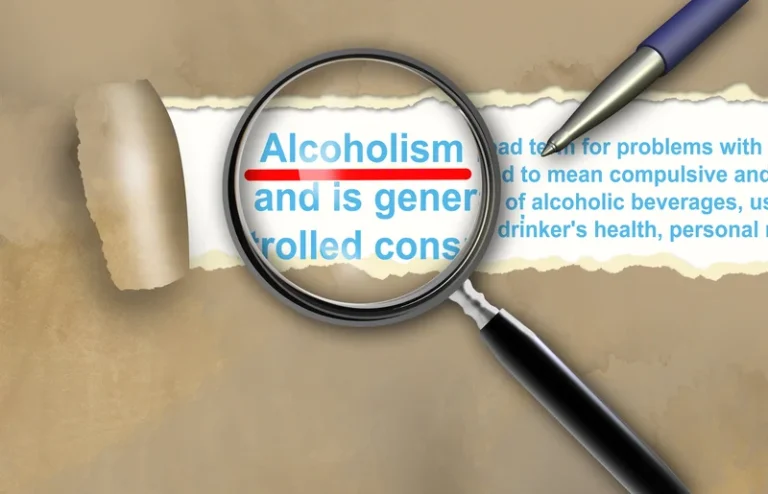
Diabetes is the most common culprit, causing about half of all neuropathy cases. Even prediabetes is of concern to physicians because it leads so often to diabetes. In a 2019 study, researchers showed that quitting alcohol had a positive effect on most people’s mental well-being. Physical therapy and orthopedic appliances (such as splints) may be needed to maintain muscle function and limb position. Your health care provider will perform a physical exam and ask about symptoms. Motor nerves are the nerves is alcoholic neuropathy dangerous responsible for all voluntary skeletal and somatic movement such as moving the leg or arm.
Intake of Alcohol
- Early diagnosis and treatment give you the best chance for controlling your symptoms and preventing further damage to your peripheral nerves.
- These symptoms can occur in addition to the symptoms of alcohol withdrawal.
- However, alternative therapies do not have side effect and tackle nutritional deficiencies and oxidative stress.
- Chronic alcohol consumption leads to malnutrition with dysfunctions in protein and lipid metabolism which affect the metabolic pathways and progression of ALN symptoms within the central and peripheral nervous systems 89.
- It is estimated that consumption of more than 100 ml of ethyl alcohol per day significantly increases the risk of ALN 56.
Electromyography and nerve conduction tests are performed in order to reveal signs of ALN. Sensory functions and reflexes can be tested during a neurological examination. Several treatment options and interventions can help a person recover from alcohol dependence. Once a person stops using alcohol, they can often experience recovery from symptoms, though in some cases, some damage may be permanent.

Does Insurance Cover Alcohol Addiction Rehab?
Patients who have ALN might present such symptoms as cramps, impaired movement of the limbs, muscle atrophy, muscle weakness, spasms, or contractions, loss of sensation, or feeling of tingling. Besides, the gastrointestinal and urinary systems are also affected and include the presence of diarrhea, constipation, nausea, swallowing difficulties, abdominal bloating, and urinary retention. Alcohol misuse can lead to neurological damage that can affect multiple areas of a person’s health and well-being. The best way to avoid the issue is to limit alcoholic consumption to 2 or fewer drinks per day for males and 1 or fewer for females. Researchers have not determined if this is caused by the effects of alcohol on the brain or is the result of thiamine deficiency. Females can be more susceptible than males to many of the negative consequences of alcohol use, such as nerve damage, as they may begin to see effects from a lower amount of alcohol consumption.
Alcoholic polyneuropathy

The diagnostic process may involve neurological examination, blood tests, and electromyography. People who drink heavily on a regular basis and have one or more of the following symptoms should contact a doctor. Having a healthcare professional come to your house to assist with your needs can relieve a lot of added stress on you to keep track of your treatment plan alone.
- Especially if you have been drinking heavily for many years, coping with alcohol use disorder is not easy.
- Gastrointestinal symptoms include delayed stomach emptying and intestinal transit, dyspepsia, and faster emptying of the gallbladder 165.
- Doctors tailor specific treatments and alcohol abstinence programs to the individual.
- Treatment of diabetes can slow the progression of neuropathy and also help people with other health problems related to diabetes, including eyesight complications, kidney problems, strokes and heart attacks.
- As a result, it is usually necessary to get medical help to manage alcohol use disorder.
How do doctors diagnose alcoholic neuropathy?
One of the most common adverse effects seen in patients with chronic alcohol use disorder is alcohol neuropathy. This commonly presents with pain, paresthesias, and ataxia in the distal lower extremities. The exact number of people affected by this condition is not known, but studies have shown that up to 66% of patients with chronic alcohol use disorder may have some form of the disease. The cause is multifactorial, from both nutritional deficiencies and alcohol metabolism’s direct toxic effects on neurons.

- Alcoholic neuropathy is damage to the nerves that results from excessive drinking of alcohol.
- Alcohol-induced peripheral neuropathy is a common complication of alcohol use disorder.Excess alcohol consumption can also result in malnutrition and vitamin deficiencies that have a damaging effect on nerves.
- This can be permanent, as alcohol can cause changes to the nerves themselves.
- Further, ECG changes and functions of the digestive tract (dyspeptic symptoms, stomach and gallbladder motility, orocecal transit time) can also be assessed 162, 165.
- Even though alcoholic neuropathy may not go away, there are things you can do to cope with this condition.
Lauren Smith has worked as a journalist and copywriter for the last decade, covering a range of topics including health, energy, and technology in the US and UK. Many support systems and professional services are available in person or online to help you on your journey. The most important thing you can do to treat alcohol-related neuropathy is to stop consuming alcohol.
Treatment Options for Alcoholic Neuropathy

The symptoms deteriorate through touch and pressure which intensify pain while standing or walking 124. Further progression of ALN leads to the weakening of tendon reflexes or total areflexia and disturbed proprioception, which additionally impair the ability to walk 28, 113. ALN further manifests as weakness and atrophy of muscles due to the damage of greater motor fibers and impaired neuromuscular transmission. It is likely to get worse if the person continues to use alcohol or if nutritional problems are not corrected.
Nutritional deficiencies
The damage from alcohol neuropathy can affect the nerves that control movement, senses, and organ function. This can result in a variety of symptoms that affect different areas of the body. Early alcoholic neuropathy, usually presenting as sensory symptoms in the extremities, is reversible if the patient stops drinking and establishes proper nutrition. However, more severe cases may be intractable, even with abstinence, and lead to lifelong impairment. The first step in treating alcoholic neuropathy is abstaining from alcohol, sometimes through rehab. Abstinence can prevent the progression and reoccurrence of neuropathy and, after a few months, improve symptoms in some people.
Differential Diagnosis
Especially if you have been drinking heavily for many years, coping with alcohol use disorder is not easy. But with the proper resources to help, you are better set up for success with sobriety. Even though alcoholic neuropathy may not go away, there are things you can do to cope with this condition. Heidi Moawad is a neurologist and expert in the field of brain health and neurological disorders. These are some other questions people often ask about alcoholic neuropathy.
Alcohol Neuropathy: Symptoms, Diagnosis, and Outlook
However, experts still do not have a full understanding of how alcoholic neuropathy happens, which can make treatment challenging. For those who have insurance, using health insurance to pay for rehab should cover at least some of the cost of addiction treatment. Depending on your individual insurance plan, treatment at a specific facility may or may not be covered. It’s important that you know what is covered prior to attending a rehab. Use the free online insurance coverage checker tool below to find out if your health insurance provides coverage for addiction rehab and other rehabilitation treatment plans for substance abuse recovery. Symptoms of alcohol-related neuropathy are similar to those of peripheral neuropathy.

